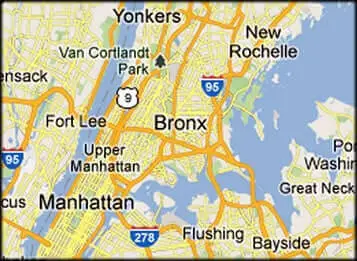A sound of contempt or derision, made by blowing through closed lips, usually with the tongue protruding.
Bronx cheer
What's the meaning of the phrase 'Bronx cheer'?
What's the origin of the phrase 'Bronx cheer'?
The Bronx is a borough of New York City, named after the 17th century Jonas Bronck, who was the first recorded European settler in the area. I don’t usually resort to circumstantial evidence for the origin of a phrase, as all phrases and sayings have definitive origins and speculation doesn’t have a place in etymology. Nevertheless, in this case it seems legitimate to bend the rule and make an informed guess, as it is hard to imagine how the expression ‘Bronx cheer’ might have originated other than as a reference to The Bronx.
‘Bronx cheer’ originated as a slang term in the USA in the early years of the 20th century and began appearing in newspapers from around 1920. The earliest example that I can find is in a newspaper report of an [American] football game between Princeton and Stagg’s universities, written by no less a luminary that the US author Damon Runyon, in the Bridgeport Telegram, October 1921:
…if Chicago lose the east will grin and give western football the jolly old Bronx cheer.
Stagg’s University wasn’t a real bricks and mortar establishment but the colloquial name of the Chicago University football team, who were trained by the celebrated sports coach Amos Stagg. Princeton is but a few miles from the Bronx and that early piece helps to legitimate the widely held view that ‘Bronx cheer’ originated at sporting events in the area. The use of the phrase in print without any accompanying explanation implies that Runyon expected his readers to be familiar with it. The use of ‘old’ as a description also suggests an origin prior to 1921.
Many Americans believe that the birthplace of the phrase ‘Bronx cheer’ was The New York Yankees stadium. Runyon’s piece disproves that, as the stadium wasn’t built until 1923, after the phrase was already in use. Other sources, also unsubstantiated, suggest Bronx theatres to be the origin.
At that date England and America were two countries separated by a common language (as George Bernard Shaw never said) and in England a report like the one above would have surely substituted the word ‘raspberry’. ‘Bronx cheer’ was included in an English-American Dictionary column that was printed in the English newspaper The Daily Mail in 1924, which was part of the Mail’s regular attempts to keep their readers up to date with Americanisms, but the phrase never established itself over here.
‘Blowing a raspberry’ is essentially the same action as making a Bronx cheer. That expression is a little earlier and was coined at the end of the 19th century. It also has a popularly believed derivation, which may or may not be true. It is generally thought that the expression is a shortened version of the Cockney rhyming slang ‘raspberry tart’ and, as the sound is an imitation of flatulence, I’ll leave it to you to decide what ‘tart’ is supposed to rhyme with. Other explanations are that a raspberry comes from the shape of the lips when making the sound, or simply that it is a rasping sound.
The history of “Bronx cheer” in printed materials
Trend of bronx cheer in printed material over time
Related phrases and meanings
Browse more Phrases
About the Author

Phrases & Meanings
A-Z
A B C D E F G H I J K L M N O P Q R S T UV W XYZ
Categories
American Animals Australian Bible Body Colour Conflict Death Devil Dogs Emotions Euphemism Family Fashion Food French Horses ‘Jack’ Luck Money Military Music Names Nature Nautical Numbers Politics Religion Shakespeare Stupidity Entertainment Weather Women Work
How did we do?
Have you spotted something that needs updated on this page? We review all feedback we receive to ensure that we provide the most accurate and up to date information on phrases.
